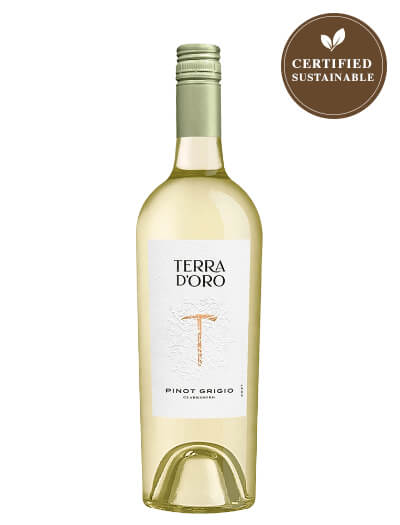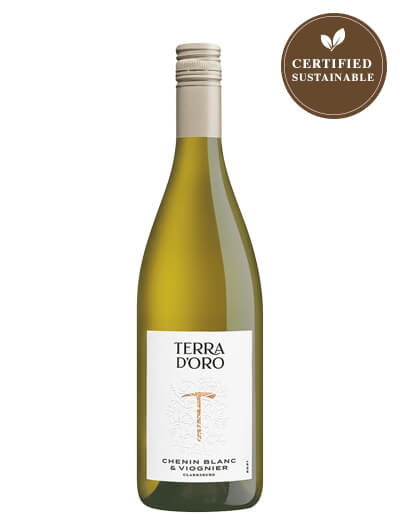Sustainability
All Terra d’Oro vineyards are tended through sustainable best practices in irrigation, soil amendments, cover crops, pest management and more. In Amador, two of our vineyard blocks have been certified organic (CCOF) since the 1990s and another 43 acres are to be certified organic by 2023. All of our Clarksburg vineyards are Lodi Rules Sustainable Farming certified and some have completed CCOF certification.
Soils
The soil is literally the foundation for the vines’ health, so its own health is key. Through precise soil and plant tissue sampling we are able analyze the nutrient content of both, and amend the soil as needed to keep the vines thriving. If we need to replace or supplement nutrients we add compost created from the pomace left after harvest to which we add amendments based on that vineyard’s specific needs. To help maintain those nutrients, we select and plant cover crops between the vineyard rows based on each vineyard block’s soil and the grape variety.
Water
Grapevines don’t need a lot of water when farming for intensely flavored wine grapes, but there are times in the growing season when it is critical, as water intake correlates with the nutrient intake. Early in the growing season, more nutrients are required for a good crop set and to help establish the leaf canopy. To track and analyze those needs, we use a combination of the high tech (aerial imagery and soil neutron probes) and low tech (walking the vineyard), then our drip irrigation system is set up to water each individual block based on those results. We also actively conserve and manage our natural watershed.
Ecosystem
There are numerous practices we employ in and around the vineyard to create vine balance, control pests and reduce usage of treatments. These include thinning vine leaves by hand. This opens the vine’s canopy, reducing the risk of powdery mildew, and increases the dappled lighting on the clusters, which promotes uniformity of ripening. In addition, spore traps placed around the vineyards allow us to detect and treat mildew at the earliest stages, further reducing any need to spray.
We also use biological rather than chemical pest controls. You’ll find owl boxes around the vineyards, as owls are a natural predator for rodents. Native California wildflowers planted in the vineyard rows attract beneficial insects that can prevent infestations in the vines. These also support the region’s native bee population, which is vital to crops and plants of all kinds.


